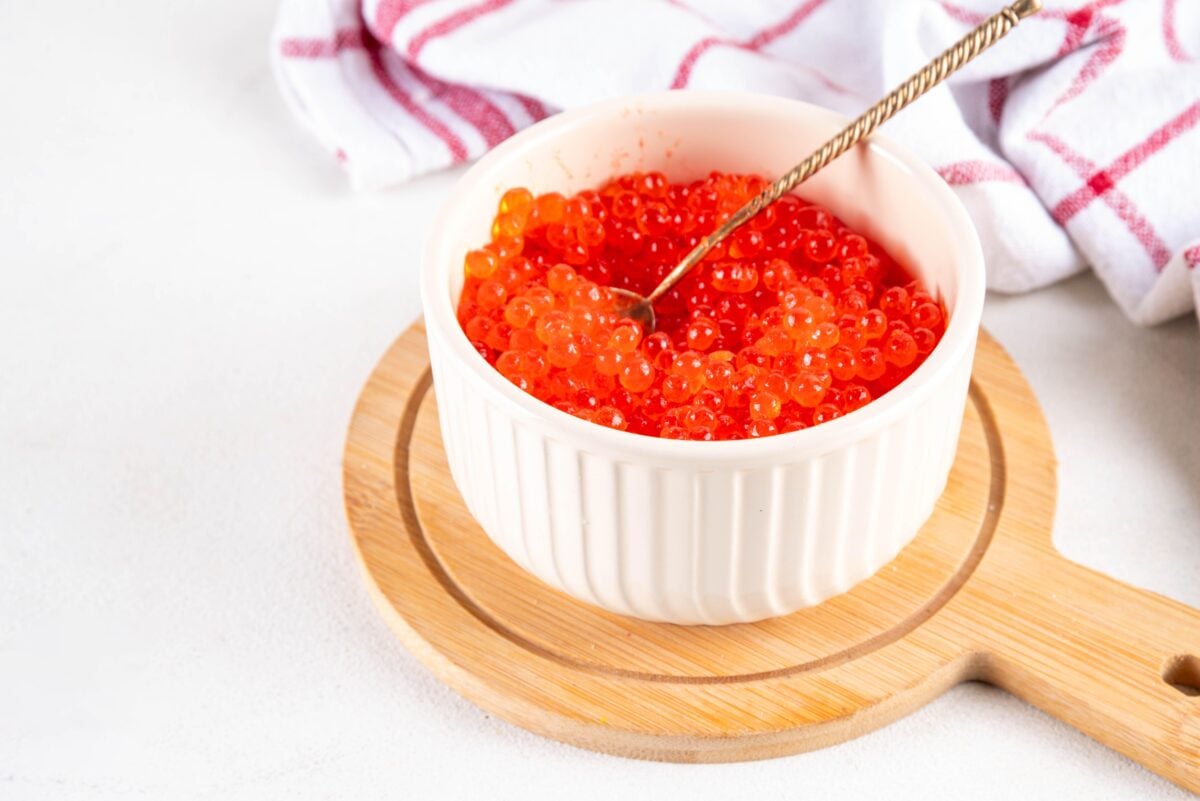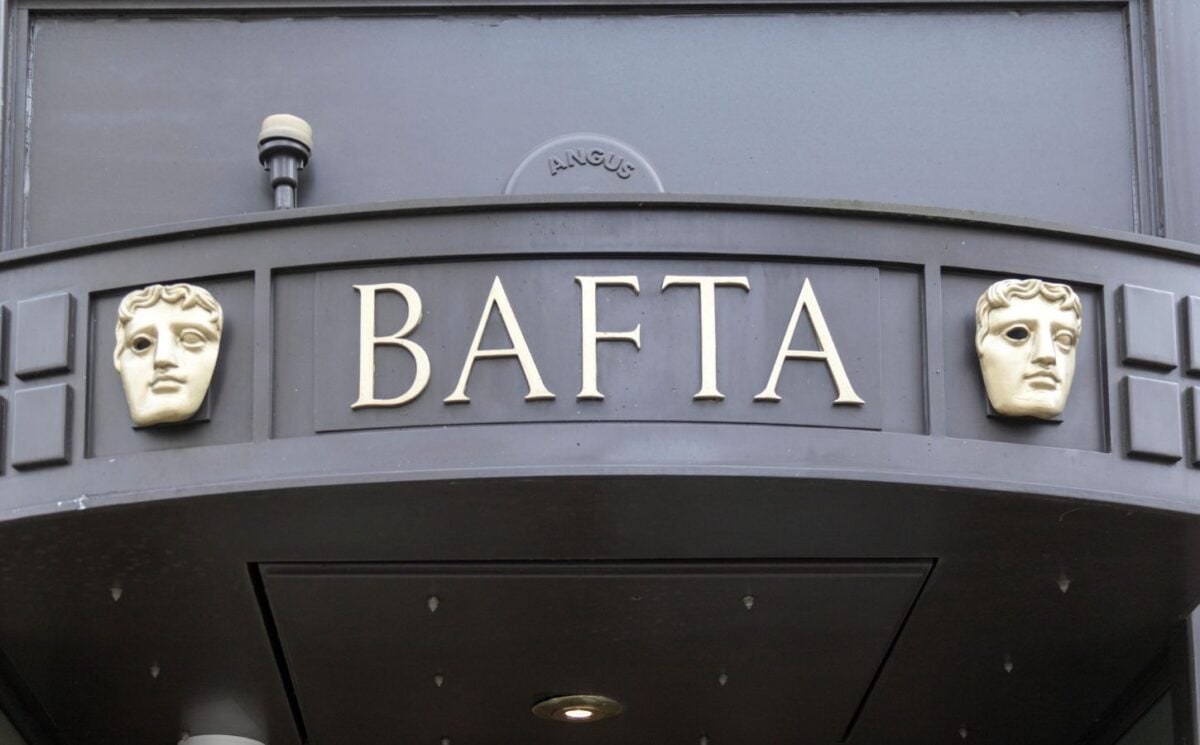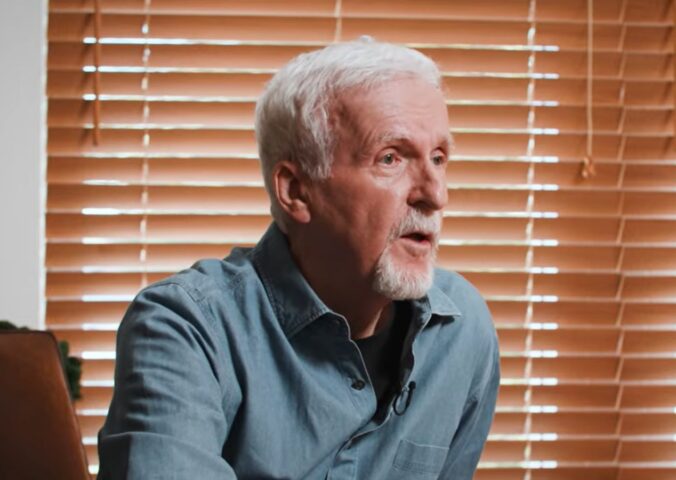Caviar made from seaweed instead of fish eggs was served at the Bafta Awards as part of the charity’s efforts to promote sustainability.
Around 2,000 guests were served a three-course menu at the Southbank Centre in London after the awards ceremony. The caviar came in reusable tins featuring the Bafta mask, served with sourdough bread.
There were other plant-forward items on the menu, including pickled or parfait organic mushrooms from Sussex as the starter. The meat-free option for the main was roast crown prince squash and zero-waste root vegetable bhaji.
Read more: Anti-Dairy Ad To Be Screened At Cinemas In ‘UK First’
Bafta promotes sustainability in the film and television industry through its albert programme. Albert provides tools and guidance for the industry to reduce its environmental impact, including how to create content that promotes climate action.
More sustainable caviar

Bafta guests are not the first to have enjoyed vegan caviar. It is becoming a more common alternative, with several producers and restaurants such as Gauthier Soho offering it for sale. Plant-based chef Kirk Haworth won the fish round of Great British Menu with seaweed caviar.
Caviar made from fish eggs, known as roe, is often regarded as both cruel and unsustainable. European sturgeon are on the brink of extinction due to their eggs being harvested for caviar, as the fishes are killed to extract their eggs. There are regulations in place that are supposed to protect wild sturgeon and help their numbers recover. But genetic testing of caviar samples from Eastern Europe have revealed that half of commercial caviar has been harvested illegally.
Farmed sturgeon is often described as more sustainable, with some farms being “no-kill” producers. But this still involves handling the fishes, including making incisions to get their eggs out.
Read more: What Is Vegan Seafood, Is It Healthy, And What Brands Are Best?






